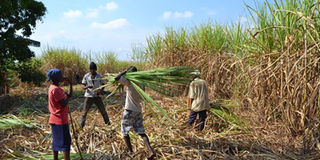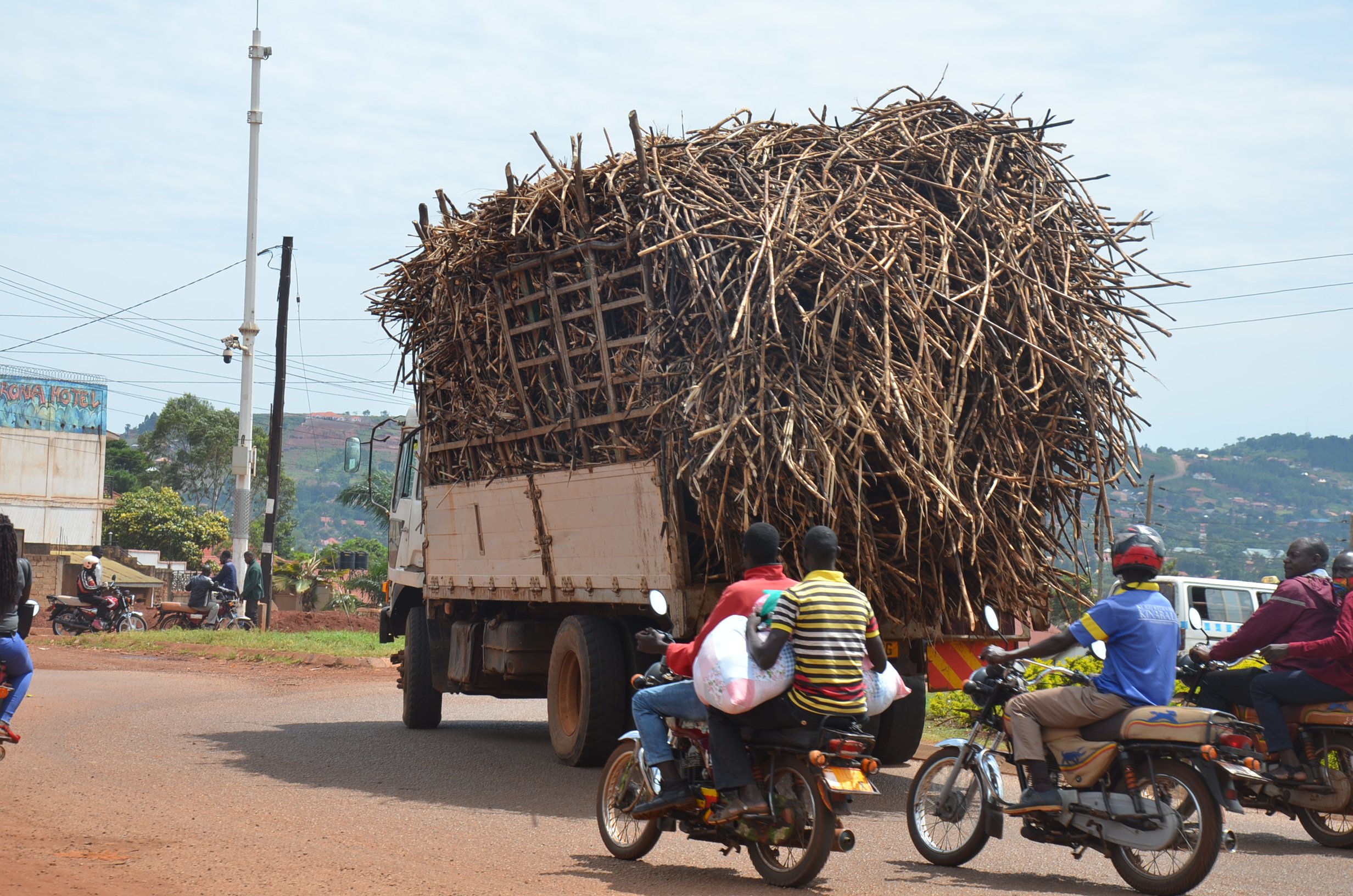Food crisis looms as farmers abandon food crops for sugarcane cultivation

Harvest. Workers collect sugarcanes in one of the plantations in Masindi District last week. PHOTO BY MUDANGHA KOLYANGHA
What you need to know:
- Mr George Mugisa, a banana trader in Masindi Market, said they are now sourcing bananas and Irish potatoes from other districts, which clearly indicates that local food production is no longer sufficient to meet their needs.
Leaders in Masindi District have expressed concern over the expanding sugarcane plantations at the expense of food crops in the district.
The leaders said the farmers are increasingly abandoning traditional food crop cultivation in favour of the more lucrative sugarcane farming.
This shift in agricultural focus, the leaders said, raises fears of an impending food crisis in Masindi.
Mr Cosmas Byaruhanga, the Masindi District chairperson, told Daily Monitor on Monday that sugarcane cultivation has drastically reduced the available land for growing essential food crops such as maize, bananas, beans, among others, something jeopardizing the district’s ability to feed its communities.
“We are facing a serious threat to our food security due to the rapid expansion of sugarcane plantations. This has left us with limited space to grow the food required to sustain our communities,” Mr Byaruhanga said.
The leaders said the most affected areas include Bujenje and Buruli sub-counties, and Masindi municipality.
The locals sell the cane to Kinyara Sugar Works in Masindi Town, and some to Hoima sugar factory in Hoima District.
Byaruhanga said as a result of sugarcane farming, some residents are now compelled to purchase some essential food items such as bananas and Irish potatoes from neighbouring districts.
He called upon Masindi’s residents to prioritise food cultivation and environmental conservation.
Mr Job Byaruhanga, the Masindi agricultural officer, warned that hunger could soon become more widespread in the district because even the farmers are also selling off the little food crops they are growing.
Mr Kiiza Keneth Nyendwoha, the Bunjenje MP, said they need concerted efforts to prioritise food cultivation and environmental preservation to avert the looming food security crisis in the district.
“We need to balance economic development and the essential need to feed our communities. It’s a challenge that Masindi residents and leaders must be determined to address,” Mr Nyendwoha said.
Mr Robert Atugonza, the chairperson of Masindi Sugarcane Farmers Association Limited (MASGAL), said urged farmers with little land not to venture into sugarcane growing.
“Government needs to improve agricultural extension service delivery, look for markets for agricultural produce, and support farmers with quality seeds to increase food production in the district,” Mr Atugonza said.
Mr George Mugisa, a banana trader in Masindi Market, said they are now sourcing bananas and Irish potatoes from other districts, which clearly indicates that local food production is no longer sufficient to meet their needs.
“We used to take pride in our local produce, but now we are sourcing bananas and Irish potatoes from other districts in Ankole like Mbarara and Kiruhura, which is a clear indication that our food production is not meeting our needs,” Mr Mugisa stated.




